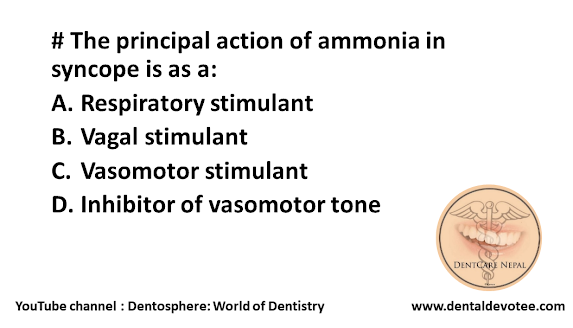# The principal action of ammonia in syncope is as a:
A. Respiratory stimulant
B. Vagal stimulant
C. Vasomotor stimulant
D. Inhibitor of vasomotor tone
The correct answer is A. Respiratory Stimulant.
Aromatic ammonia is used to treat vasodepressor syncope as well as respiratory depression not induced by opioid analgesics
Aromatic ammonia is the agent of choice for inclusion in the emergency kit as a respiratory stimulant. It is available in a silver-gray vaporole, which is crushed and placed under the breathing victim’s nose until respiratory stimulation is effected. Aromatic ammonia has a noxious odor and irritates the mucous membrane of the upper respiratory tract, stimulating the respiratory and vasomotor centers of the medulla. This action in turn increases respiration and blood pressure. Movement of the arms and legs often occurs in response to ammonia inhalation; these movements further increase blood flow and raise blood pressure, especially in the patient who has been positioned properly (e.g., supine with feet elevated slightly).







